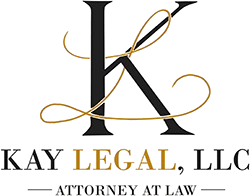Few things are more crucial than having the correct estate planning documentation regarding future planning and safeguarding your family heritage. Wills and trusts are two of the most often heard instruments among others. Although both help you to distribute and manage your possessions at death, they have distinct uses and advantages.
Legal words may seem daunting at Kay Legal, LLC, particularly when attempting to make choices that will impact the ones most loved. We are here to help you to simplify and break things down in a basic manner. Let’s examine the main distinctions between a will and a trust and discuss how best to choose which would fit your circumstances.
A Will is What?
A will is a legal document expressing your intentions to divide your estate upon death. It also lets you pick someone known as an executor to follow your directions and designate a guardian for your young children.
Essential Elements of a Will:
- It only starts to have an effect after death.
- Names of guardians for little children
- It tells how your assets should be divided.
- Names someone to manage the process.
- It has to go through a court-supervised probate procedure.
Benefits of Writing a Will:
- Relatively cheap and easy to produce.
- It lets you state your preferences.
- It helps you to designate guardians for your kids.
A Will Has Several Drawbacks as Well:
- Calls for probate are a public and time-consuming process.
- It does not assist in managing your assets throughout your lifetime.
- Perhaps challenged more readily than a trust.
Definition of a Trust
A trust is a legal structure wherein you assign ownership of your assets to a distinct legal body (the trust) run under the direction of a trustee for the benefit of your designated beneficiaries. Though there are various trusts, a revocable living trust is the most often used in estate planning.
Essential Characteristics of a Trust:
- You can start right now while you are still alive.
- Enables asset management should you become disabled.
- Steers clear of probate
- Maintains confidential aspects of your estate.
- Provides additional management over the timing and distribution of assets.
Benefits of a Trust:
- It avoids probate court, therefore saving your family time and money.
- Provides privacy as it is not included in the public record.
- It can protect recipients from creditors, litigation, or their own bad choices.
- It is helpful if you have a complicated estate or own property in many states.
- Change or revoke when you are still living.
Trust Has Its Drawbacks as Well:
- It takes more time and money to set up initially.
- To make assets practical, you must retitle them under the trust name.
- It does not let you name a guardian for minor children; a will is still required.
Is a Trust and a Will Necessary?
Indeed, having a will plus a trust often offers the most complete estate strategy.
Even if you have a trust, a “pour-over will” is often used to capture assets not already in the trust and direct them into it upon your death. Something a trust cannot do, a will is also required to appoint guardians for young children.
At Kay Legal, LLC, we take the time to learn about your family’s particular requirements so we may assist you in developing a strategy that fits your life now and in the future.
Which One Then Is Appropriate for You?
These rules should assist you in making decisions:
- Use a will if your estate is modest and simple and you mostly want guardians named for your children.
- Use a trust if you wish to avoid probate, preserve privacy, or have a more complicated estate with instructions for how and when your assets are transferred.
Let Us Guide You Toward the Correct Decision
Making a will or trust protects your loved ones, honors your legacy, and guarantees peace of mind, not just concerning money. Kay Legal, LLC is here to assist you whether your current plan needs to be changed, or you are just starting.
We will assist you through every stage, address your concerns, and provide you with the legal instruments you need to protect your family’s future boldly.
To arrange your estate planning visit, get in touch right now.
Your future calls for a strong foundation, which we are here to assist you in creating.
